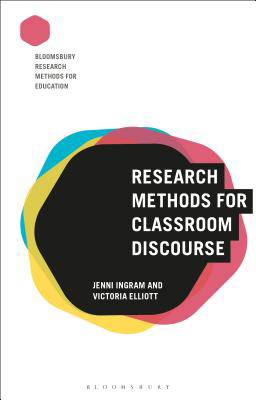
- Afhalen na 1 uur in een winkel met voorraad
- Gratis thuislevering in België vanaf € 30
- Ruim aanbod met 7 miljoen producten
- Afhalen na 1 uur in een winkel met voorraad
- Gratis thuislevering in België vanaf € 30
- Ruim aanbod met 7 miljoen producten
Zoeken
€ 69,45
+ 138 punten
Uitvoering
Omschrijving
Language, both spoken and written, is key to understanding learning processes in the classroom. Research Methods for Classroom Discourse is for those who want to investigate spoken interaction or other discourse in the classroom. It lays out clearly the different approaches which are possible, identifying the key principles of each. It addresses the differences between them and the consequences these differences might have for teachers and researchers. Each approach is outlined in terms of practical methods advice, reasons for use, and case studies in which the approach has been used in classroom discourse.
Common approaches such as conversation analysis, positioning theory, and critical discourse analysis are included alongside more specialised approaches such as discursive psychology and corpus linguistics. The context of classroom research is used to frame all discussions, with connections to other uses and applications where it can enhance the research being undertaken. The authors demonstrate the relationship between these different theoretical approaches through considering particular applications to common topics within classroom research, such as multilingual learners, knowledge/ knowing and identity. The authors assume no prior knowledge of technical terms and a glossary of key term terms is included. Practical issues such as ethics, data collection and transcription are an integral part of the discussion throughout, providing students with all the knowledge needed to embark upon a successful research project in this area.Specificaties
Betrokkenen
- Auteur(s):
- Uitgeverij:
Inhoud
- Aantal bladzijden:
- 248
- Taal:
- Engels
- Reeks:
Eigenschappen
- Productcode (EAN):
- 9781350072664
- Verschijningsdatum:
- 17/10/2019
- Uitvoering:
- Paperback
- Formaat:
- Trade paperback (VS)
- Afmetingen:
- 137 mm x 213 mm
- Gewicht:
- 317 g

Alleen bij Standaard Boekhandel
+ 138 punten op je klantenkaart van Standaard Boekhandel
Beoordelingen
We publiceren alleen reviews die voldoen aan de voorwaarden voor reviews. Bekijk onze voorwaarden voor reviews.








